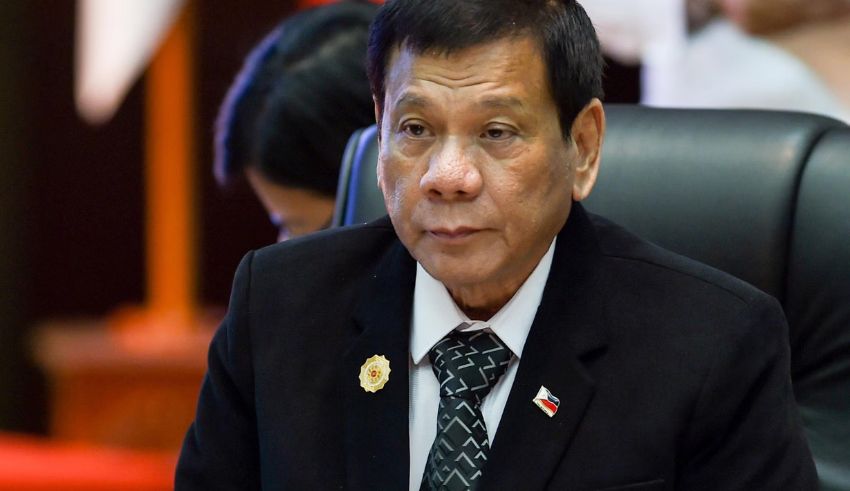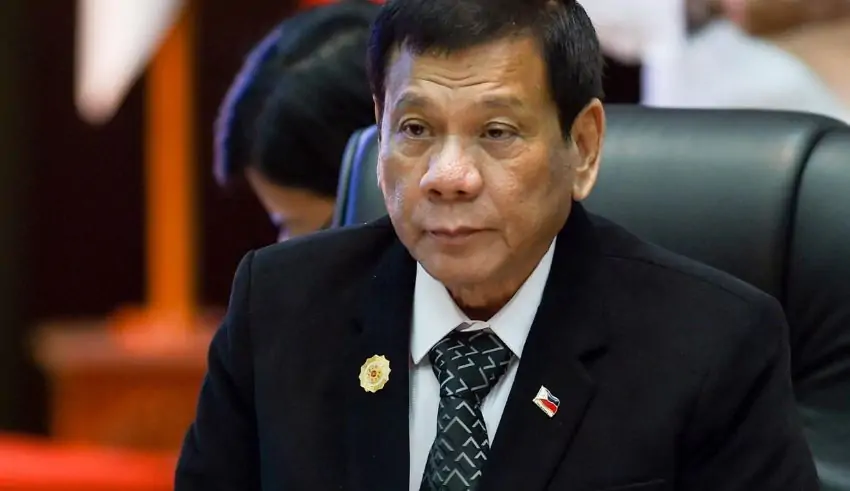

(C) The Independent
The 2024 presidential election in the Philippines is expected to be a tense and turbulent affair, as two rival factions vie for power and influence: Rodrigo Duterte, the incumbent president and leader of the PDP-Laban party, and Ferdinand Marcos Jr., the son of the late dictator and leader of the NP-NPC coalition. Both candidates have loyal and passionate followers, but also face fierce opposition and resistance.
One of the most divisive issues in the campaign is the question of secession or unity. The Philippines is a diverse and complex country, composed of more than 7,000 islands and over 100 ethnic groups, each with their own culture, language, and history. The country has a long and bloody history of separatist movements and armed conflicts, especially in the southern regions of Mindanao and the Sulu Archipelago, where Muslim rebels have been fighting for autonomy or independence for decades.
In a recent speech in Davao City, his hometown and stronghold, Rodrigo Duterte declared that he would support the creation of a new independent state in Mindanao, called Bangsamoro. He said that he would respect the will and aspirations of the people of Mindanao, who have suffered from discrimination, oppression, and violence under the central government. He said that he would negotiate with the leaders of the various rebel groups, such as the Moro Islamic Liberation Front (MILF) and the Moro National Liberation Front (MNLF), and offer them a peaceful and democratic transition to self-rule. He said that he would also grant autonomy and recognition to other indigenous and minority groups in Mindanao, such as the Lumad and the Tausug.
Duterte said that his secessionist call was motivated by his love and concern for his fellow Mindanaoans, and his desire to end the cycle of war and poverty in the region. He said that he was not afraid of the consequences or the backlash from the rest of the country, and that he was ready to face any legal or political challenge. He said that he was confident that his supporters and allies would stand by him and his decision, and that he would win the election by a landslide.
Ferdinand Marcos Jr. responded to Duterte’s secessionist call by denouncing it as a “treasonous and irresponsible” act that would endanger the sovereignty and integrity of the Philippines. He said that Duterte was playing with fire and risking a civil war, and that he was betraying his oath and duty as the president of the republic. He said that Duterte was pandering to the rebels and the terrorists, and that he was undermining the efforts and sacrifices of the military and the police, who have been fighting to restore peace and order in Mindanao.
Marcos said that his response to Duterte’s secessionist call was driven by his patriotism and loyalty to the Filipino nation, and his vision to restore the glory and greatness of the Philippines. He said that he would oppose and resist any attempt to break up or weaken the country, and that he would defend and uphold the constitution and the law. He said that he would also pursue and promote the development and welfare of all regions and sectors of the country, and that he would ensure the protection and respect of the rights and interests of all Filipinos. He said that he was optimistic that his supporters and partners would rally behind him and his agenda, and that he would defeat Duterte in the election by a wide margin.
The clash between Duterte and Marcos over the issue of secession or unity has stirred up a lot of emotions and opinions among the public and the media. Some applauded Duterte for being brave and bold, and for recognizing and addressing the grievances and demands of the people of Mindanao. Others criticized Duterte for being reckless and selfish, and for creating and exploiting a crisis for his own political advantage. Some praised Marcos for being loyal and steadfast, and for preserving and protecting the unity and stability of the country. Others condemned Marcos for being arrogant and oppressive, and for ignoring and neglecting the diversity and complexity of the country.
The issue of secession or unity is likely to remain a hot topic and a key factor in the 2024 presidential election. According to a recent survey by a reputable polling agency, Duterte and Marcos are neck and neck in the race, with 48.2% and 47.3% of the vote share respectively. The remaining 4.5% of the respondents are undecided or prefer other candidates. The margin of error is 3.2%.
The outcome of the election will depend on how the candidates can appeal to and mobilize their core supporters, as well as attract and persuade the undecided and swing voters. The voters will have to weigh the pros and cons of secession or unity, and consider the implications and consequences of their choice. The future of the Philippines’ democracy and development may depend on the decision of its people.
NextRise 2025-the biggest startup and tech event in Asia-is ready to take place in Seoul on June 26-27 at COEX,…
On this reunion occasion marking 20 years after their debut, the anticipation of the fans seems to be reaching greater…
South Korean boy band RIIZE is returning to Singapore on January 24, 2026 as part of their “RIIZING LOUD” Asia…
Experience Japan’s longest running all-night rock festival, RISING SUN ROCK FESTIVAL 2025 in EZO, with incredible acts, a wealth of…
United States Immigration and Customs Enforcement conducted audits of three Denver cleaning companies, leading to more than $8 million in…
Cricket fans, rejoice! The Olympic Council of Asia (OCA) has confirmed that cricket will be part of the 2026 Asian…
This website uses cookies.
Read More